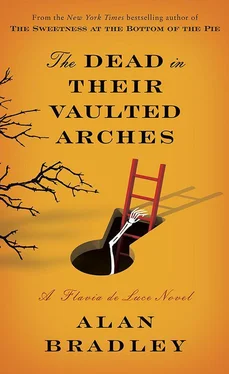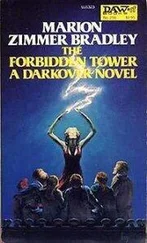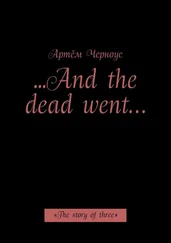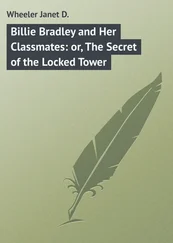“All creatures great and small .
“All things wise and wonderful
“The Lord God made them all.”
The O.E.D . wasn’t much help. On the one hand, it said that “creature” meant anything created, animate or inanimate, while another definition stated that it referred to a living creature or animate being, as opposed to “man.”
The moral choice was left up to the individual.
“No,” I said.
“Not that it’s my place to check you up.” Dr. Darby smiled.
We sat there in silence for a few minutes, surrounded by the moundy graves in the churchyard, kicking at the wall with our four heels.
“It is good to sit on a wall with a young woman on a sunny summer day,” the doctor said. He could see by my grin that I couldn’t agree more. He was flattering me but I didn’t mind.
“It makes up in part for the less happy occasions.”
I let the silence lengthen until he said: “We lost a girl today … about your age. At the hospital. Her name was Marguerite and she didn’t deserve to die.”
“I’m sorry,” I told him.
“There are times when all we doctors with all our fabled skills are simply not enough. Death defeats us.”
“You must be sad,” I said.
“I am. Damned sad. She suffered from what we call an idiopathic neuropathy. Do you know what that means?”
“It means you don’t know the cause,” I said.
“We’re working on it,” Dr. Darby said, nodding wearily, “but it’s early days yet. Early, that is, for the rest of us—but too late, I fear, for Marguerite.”
“Was she beautiful?” I asked. It seemed desperately important to know.
Dr. Darby nodded.
I pictured the dying Marguerite with her golden hair spread out across a pillow, her face pale and damp, her black-circled eyes shut, her mind already in another world. I pictured her grieving parents.
“And there was nothing you could do?”
“We had been going to administer ATP as a last-ditch attempt, but—how very odd, you see, that you should have mentioned it.”
“ATP? Adenosine triphosphate?”
“It’s in my bag.” He pointed towards the still-steaming Morris. “An old school chum managed to wangle a couple of trial doses. Not much need for it now, I’m afraid.”
Was Dr. Darby telling me what I thought he was telling me? I scarcely dared breathe.
“If you wish to have it, it’s yours,” he said, sliding down from the wall and walking towards his car. “I’ll have to get Bert Archer to tow old Bessie into dry dock.”
“I’m sorry about your car,” I said. “I should have watched where I—”
Dr. Darby held up a hand, its palm towards me. “The poet Cowper,” he said, “who knew whereof he spoke, once wrote, ‘God moves in a mysterious way, his wonders to perform.’ We mere mortals must never question what we sometimes take to be the blind workings of Fate.”
He lifted his black doctor’s bag out of the Morris, reached into its square mouth, and extracted two stoppered glass vials. “That’s why I have faith in you, Flavia,” he said, and handed them over without another word.
I suppose I should have been filled with feelings of warm gratitude, but I was not. Rather, I was overcome, sitting on that sunny wall, with something like a chill.
How laughably easy it had been, when you stopped to think about it, to extract the thiamine and the ATP from Annabella Cruickshank and Dr. Darby. It was almost as if their actions were being guided by some greater power.
Could it be that the spirit of my deceased mother, wherever it might be, was reaching through the veils from another world to assure her own resurrection?
Were we all of us no more than puppets in Harriet’s dead hands?
FIFTEEN
MY ANKLES GREW FEATHERS like Mercury, the wing-footed god, as Gladys and I flew home—long way round, of course: west towards Hinley, then south along the same country lane by which we had come, until we were due west of Buckshaw.
I was pushing Gladys through a gap in the hedgerow, heading for the last lap across the fields, when a familiar blue Vauxhall emerged from a grassy turnout and rolled at an ominously low speed towards me.
It was, of course, Inspector Hewitt.
“I thought we might catch you coming round this way,” he said, rolling down the window. On the other side of the car, at the wheel, Detective Sergeant Woolmer ducked his head slightly and turned his face to give me one of his stolid police-issue looks.
“I hope you weren’t lying in wait too long, Inspector,” I replied lightly, but he was not amused.
The door opened, and he stepped out into the lane.
“Let’s take a walk,” he said.
We strolled along in silence for about fifty yards before the Inspector stopped and turned to me. “I’m very sorry about your mother, Flavia. I can’t even begin to imagine how you must feel.”
At least the man had the sense to admit it.
“Thank you,” I said, meaning it.
“If there’s anything Antigone and I can do, don’t hesitate to ask.”
“I’d like both of you to come to the funeral,” I said suddenly without even thinking. I don’t know what made me blurt it out. “It’s tomorrow.”
Antigone, the Inspector’s wife, was, to me, the sun. I adored the woman. Just the thought of having her there to share Harriet’s funeral made it seem a little less dreadful.
“We were planning to come anyway,” the Inspector told me, “but thank you for the invitation.”
The formalities were out of the way, the right words spoken. It was time to get down to the real reason for his visit.
“I expect you’ll be wanting to question me about the man who was murdered on the railway platform.”
“Murdered?” the Inspector repeated. He almost—but not quite—gasped the word.
“Someone said he was shoved. I don’t know who.”
“Shoved? Is that what they said?”
“Actually, they said ‘pushed’: ‘Someone pushed him.’ I didn’t see who said it, and I didn’t recognize the voice. I’m surprised no one’s told you that.”
“Yes, well. We still have many witnesses to interview. I’m sure that one or more of them will be able to substantiate your statement.”
If I were in charge of the police investigation , I thought, I’d be looking first for the person who said “Someone pushed him,” rather than those who might merely have overheard it .
But I said nothing. I didn’t want to aggravate the Inspector.
“It has been stated that you were the first to reach the victim’s side.”
“I was not the first,” I told him. “There were others there before me.”
Inspector Hewitt pulled a notebook from his pocket and made a note with his Biro. “Begin with the moment the train braked suddenly.”
Thank heavens! I thought. He’s sparing my feelings about Harriet .
There was no need, then, to tell him the words the stranger had spoken to me: no need to tell him that the Gamekeeper—whoever he may be—was in grave danger.
“The train braked,” I said. “Someone screamed. I thought I might be able to help. I ran to the edge of the platform—but it was too late. The man was dead.”
“How do you know that?” the Inspector asked, fixing me with a keen eye.
“There can be no mistaking that perfect stillness,” I told him. “It cannot be faked. The only things moving were the hairs on his arm.”
“I see,” Inspector Hewitt said, and made another note.
“They were golden,” I added.
“Thank you, Flavia,” he said. “You’ve been more than helpful.”
Ordinarily, a compliment like that from Inspector Hewitt would have wreathed my head in a blaze of glory, but not this time.
Читать дальше












